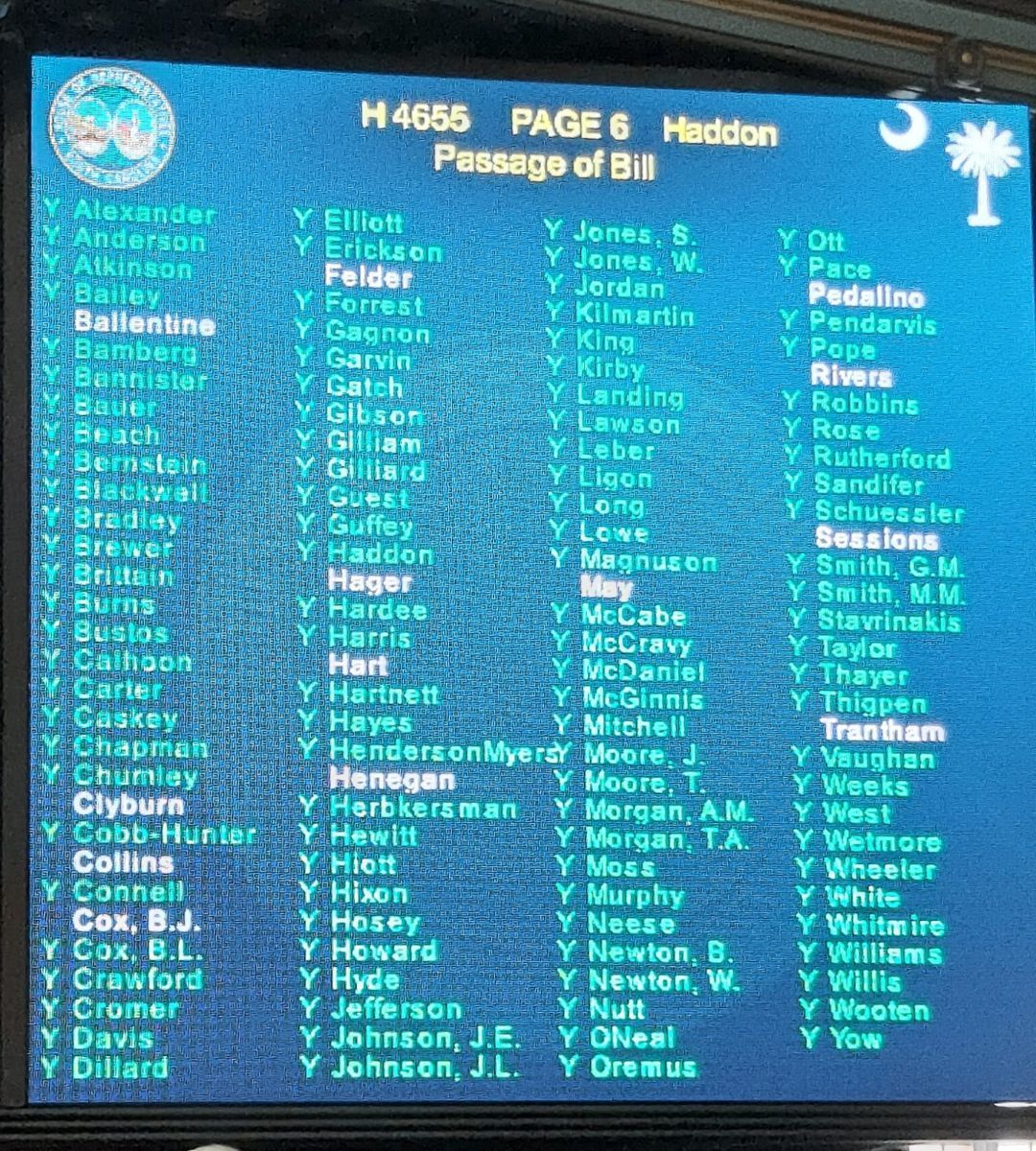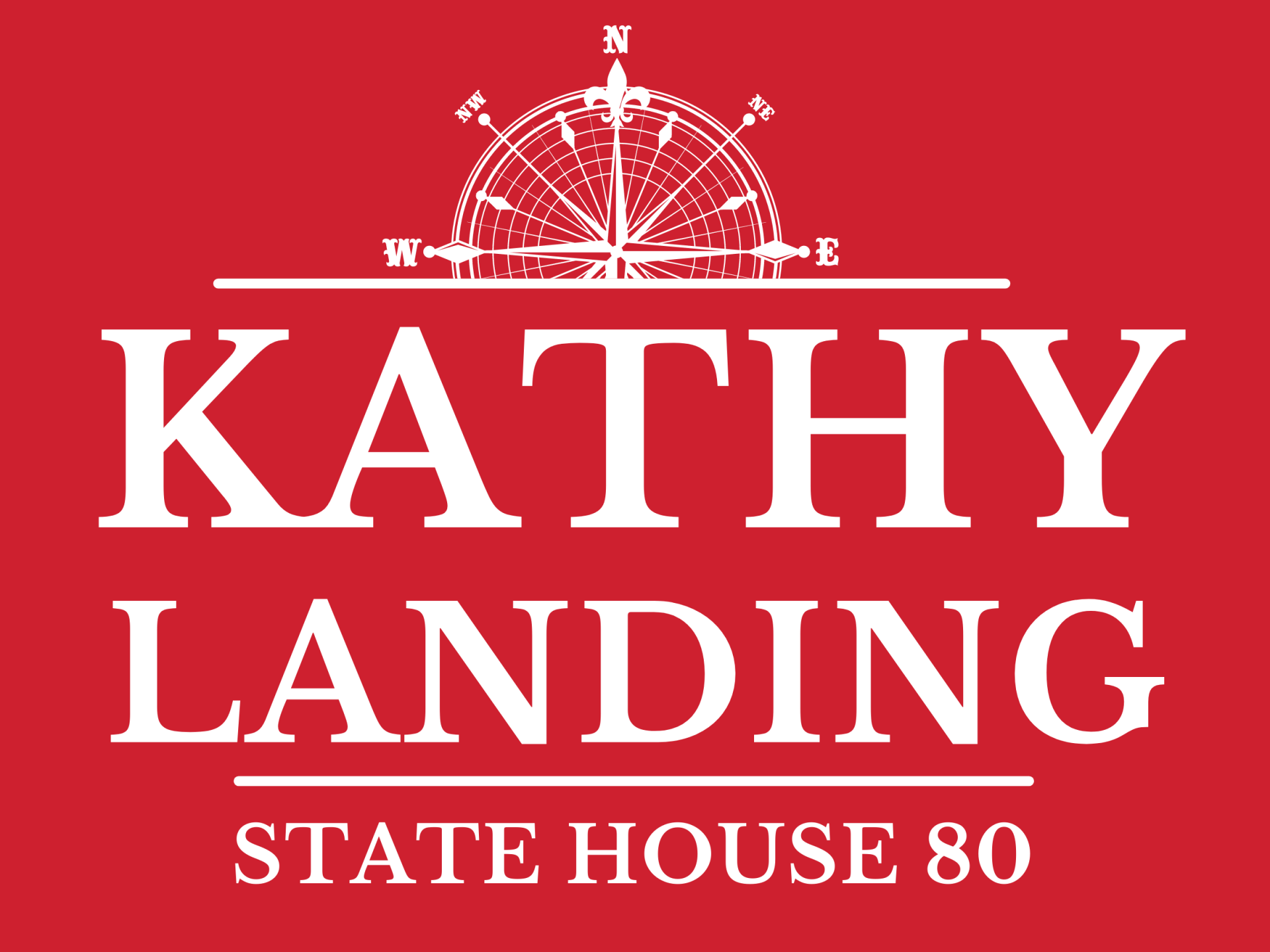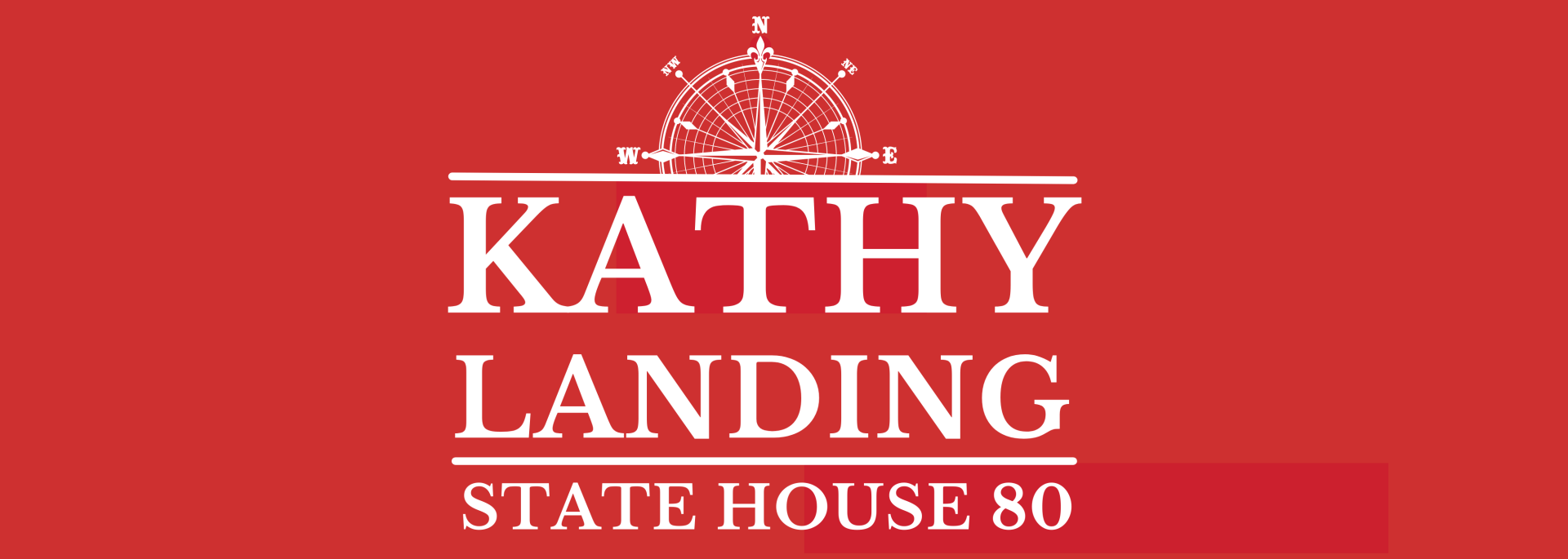Week 11 Update
Sunday, March
24, 2024
After another productive week at the State House, I will share some significant legislative updates that reflect our ongoing efforts to enhance the well-being and prosperity of South Carolinians. From expanding educational choices for families to addressing critical energy needs and setting the stage for important debates on educational policy, our focus remains on ensuring a bright and sustainable future for our state.
Expanding Educational Opportunities for South Carolina Families:
We continue to shape improvements for the future of education in our great state, I'm proud to report we are expanding the Education Scholarship Trust Fund (ESTF) program with the passage of H.5164. Much like the diversity in our communities, a one-size-fits-all approach to education falls short of meeting our children's varied needs. This legislative milestone underscores our dedication to providing families with unparalleled freedom in choosing the best educational pathways for their children. You may or may not be aware that we just completed the first application period for the new program, and it was a resounding success. With 5000 scholarships available, we had almost 8000 students apply from every county in South Carolina. Some people have asked why we are expanding the program before we even complete the first full year, and the answer is simple. Not only was the interest very high from families who want more options for their children but also the Department of Education presented a list of changes they believed would greatly enhance this program for South Carolina's students who could benefit from a different approach.
Key Enhancements to the ESTF Program:
Eligibility:
Including homeschool students and children of military personnel, we're extending educational opportunities to families across the state, irrespective of their circumstances or backgrounds.
Removal of Barriers:
Eliminating income thresholds and public school attendance requirements to open the door for more families to benefit from the ESTF program and reflect our commitment to educational equity.
Broadened Support:
The bill now covers a wider array of educational expenses, from internet connectivity to school uniforms, ensuring that students have the resources they need to succeed.
Simplified Application Process:
A rolling application system ensures that no eligible student is left behind, prioritizing continuity for those already in the program while welcoming newcomers.
This expansion is about fostering a culture of choice, innovation, and flexibility in education. From charter schools offering a blend of public accountability and autonomy, to homeschooling's personalized learning environments, and magnet schools' specialized curriculums, South Carolina is poised to become a beacon of educational freedom and excellence. As your representative, I am committed to ensuring that every child in our state has access to an education that not only meets their academic needs but also nurtures their individual talents and aspirations.
Securing a Sustainable Energy Future for Our Growing State:
As we witness unprecedented population growth, the pressing issue of energy sustainability comes to the forefront. I'm gearing up for a pivotal debate on the Ten-Year Energy Transformation Act (H.5118), next week. This bill is our response to the "crisis point" we face with energy supply, aiming to fortify our infrastructure to meet the surging demand.
The focus of H.5118 is multifaceted, aiming to:
Diversify our energy sources, with an emphasis on utilizing natural gas as an inexpensive, cleaner alternative that is readily available in the U.S., even as we work to incorporate the future of hydrogen power.
Streamline regulatory processes to facilitate the swift development of new energy projects, ensuring our infrastructure can support South Carolina's continued growth.
I'm dedicated to navigating the complexities of this bill to ensure a future where our state boasts a robust, self-sufficient energy grid. Your insights are crucial as we approach this critical decision. Please note that while you may read a number of negative articles regarding this 10-year energy plan, many of these are from those with a particular political agenda and generally do not have serious recommendations for what they would consider better choices. As mentioned earlier, maintaining the "status quo" for energy in South Carolina is simply not an option.
Recent & Upcoming Deliberations on DEI Legislation:
Two weeks ago, the Higher Education Subcommittee heard testimony on H.4289, the bill to prevent DEI from continuing to have unintended consequences in our universities, especially when it comes to free speech, freedom of thought and debate, and hiring and admissions based on merit rather than on inherited factors such as ethnicity, skin tone, religion, gender, or other traits. It passed the subcommittee and came to the Education & Public Works full committee this past week. After a lively debate which unfortunately continuously wandered into political opinion more than facts and actual circumstances being experienced by students, professors, and staff at schools, we passed this out of the committee and it will now go to the House floor. As the discussion around DEI policies unfolds in our educational institutions, the upcoming debate on H.4289 is crucial. This bill aims to ensure that our colleges and workplaces emphasize merit and individual achievement over mandatory diversity pledges and training. While the intentions behind DEI initiatives—to foster inclusivity and represent diverse backgrounds—are commendable, there is a growing conversation about finding a balance that truly benefits everyone without compromising the principles of fairness, meritocracy, and free speech. As we prepare to address this legislation, we are focused on promoting an educational environment where equality and opportunity are not just ideals, but realities for all, aligned with our highest academic standards and federal laws. This approach reinforces our commitment to a merit-based system that truly values the contribution and potential of every individual.
H.4956 - Autistic and Neurodivergent License Plates Passes Through Committee:
While reviewing the agenda for our Education & Public Works Committee earlier in the week, I realized there were two different bills involving license tags for cars. Earlier in the Session, Chair Shannon Erickson had let me know that she had been told by our Leadership that there were too many bills associated with special license tags, so I had worried that my bill H,4956 to help families with autistic individuals in interactions with law enforcement officers and other first responders might not get a hearing. I immediately called Chairlady Erickson and expressed my concern that there were other bills on the agenda related to license plates, but no mention of the autism bill. She asked our legal team to turn the bill into an amendment for one of the other bills already on the agenda. We passed it out of the subcommittee as well as the Education & Public Works Committee this week, and it will go on to the full House this coming week! Sometimes you really do have to think outside the box to get things done. If I had pushed hard for a separate hearing on this bill rather than making it an amendment to another bill, we might have run out of time for this Session since "Crossover," the week that bills need to go over to the opposite body, is in two weeks just after Easter furlough. Instead, we may see this become the law of the land in just the next month. I was reminded of a quote said to me by Tommy Baker recently, "You get so much more done when no one cares who gets the credit."
H.4655 - Requiring Recess and Physical Activity for Students from K-8th Grades:
When we heard testimony about this bill in the K-12 Subcommittee two weeks ago, I was very surprised that many schools do not provide recess and physical education to students in elementary and middle school! H.4655 passed through the House unanimously, despite some debate on whether the cost outweighs the benefits. As parents, we know how important it is physically and mentally for our children to have a chance during the day to get outside in the fresh air, participate in physical activity, and be ready to focus in the classroom for the rest of the day!

Around the District and the Lowcountry:
This past Monday I was asked by the leadership of the Charleston County Republican Party to provide a state legislative update to all the members in attendance at the monthly meeting. We have passed a lot of legislation, so I had to hit the high spots including 10 different bills of significance that passed so far. We still have so much work to be done. While I am happy for what we have accomplished, I believe some key issues including closing the primaries, instituting a safer election process with less potential for fraud, Judicial Merit Selection Committee reform, Drug-Induced Homicide, and many others must still be taken up as soon as possible.
Last fall, Speaker Murrell Smith appointed me to serve as the SC State House Representative to the Board of the Center for Educator Recruitment, Retention and Advancement. I attended the first meeting in January, and learned that one of the most impactful programs sponsored by this organization is the Teaching Fellows Program. This program identifies and provides forgivable loans to college students who intend to become teachers and are willing to commit the early years of their profession to teaching in South Carolina public schools. This week in Columbia, it was my honor to welcome and introduce the visiting Teaching Fellows from Charleston Southern, Coastal Carolina, Lander, USC-Aiken, USC-Upstate and USC-Columbia Universities to the State House. We gave them a warm welcome in the House Chambers, and they toured the State House as well as visited our colleagues in the Senate. We desperately need more teachers here in South Carolina, and these young men and women represent a great opportunity realized both for their careers and for the students in our state.
Thanks as always for your support, suggestions, and any other feedback you wish to provide. I look forward to hearing from you. The best way to solve problems is to become aware of them, hear lots of input about possible solutions, and then take action. It all starts with you helping me to know what the problems are.

